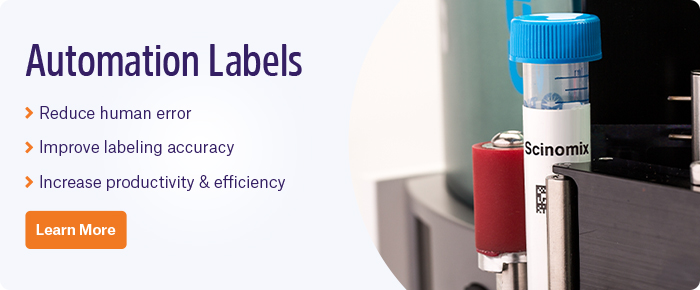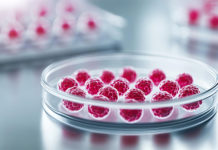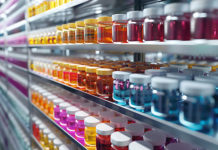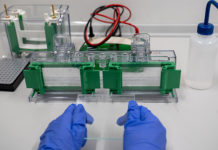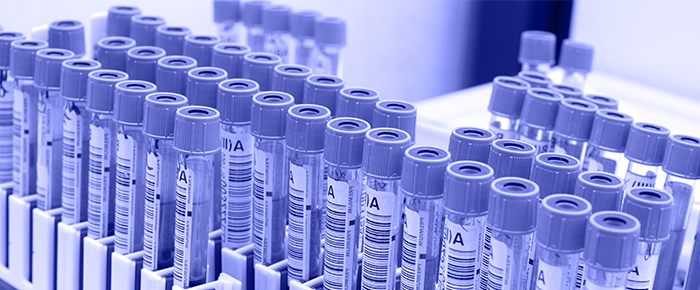 Hundreds of thousands of COVID-19 samples which need to be tracked, tested, and recorded, are generated daily. This phenomenon has propelled a new wave of automation across the healthcare sector to handle the increased throughput without being overwhelmed. Testing facilities, labs, biotechnology, and pharmaceutical companies have adopted automation in one way or another to speed up the collection, testing, and drug discovery processes.
Hundreds of thousands of COVID-19 samples which need to be tracked, tested, and recorded, are generated daily. This phenomenon has propelled a new wave of automation across the healthcare sector to handle the increased throughput without being overwhelmed. Testing facilities, labs, biotechnology, and pharmaceutical companies have adopted automation in one way or another to speed up the collection, testing, and drug discovery processes.
COVID-19 testing kit manufacturers
To facilitate the sample collection and testing process, several companies have produced COVID-19 testing kits. There are two main types of kits currently available on the market; specimen collection kits and rapid response testing kits. While the contents of the kits vary slightly, the process of putting them together poses similar challenges. These kits are of particular use to labs where they help conserve important testing materials and allow far more samples to be processed in the same amount of time. Recently, new versions of these kits have become available that also test for Influenza A & B, further increasing their usefulness as a diagnostic tool.
The specimen collection kits primarily contain a cotton swab along with a vial containing transport media to ensure the sample is properly preserved during transport. This vial should already be identified with a label containing fields to add relevant patient information for tracking purposes. Automated labelers, coupled with liquid handlers, can significantly streamline the assembly process by adding the transport media to each tube, as well as printing and placing the label on the vial. The added accuracy of automated systems will also ensure the label is placed correctly every time.
Testing kits typically include the necessary PCR reagents needed to test if a sample is SARS-CoV-2 positive. The kits are generally composed of four separate vials, containing primer-probe mixes for detecting specific SARS-CoV-2 genes, a negative control, and a non-infectious positive control that should yield a positive result in each assay. Similar to the collection kits, automated labelers can accelerate the assembly process by adding the appropriate reagent to each tube and applying the correct label. Automated labelers can also be used to identify the kit itself with barcodes or serialized information. From kit assembly to packaging, automation can play an important role in increasing output.
Laboratory sample processing
Laboratories that are processing COVID-19 specimens are dealing with a massive surge in workload. Most testing labs would typically process roughly 5000 samples a day prior to the pandemic. Today, they may be asked to handle nearly 100000 samples in the same timeframe. Each sample tested needs to be entered into the system, processed, and analyzed. This is done via polymerase chain reaction (PCR), which can involve the use of PCR tubes and plates. Preparing each individual sample can be time-consuming. With the number of samples that need to be processed and the need for quick turn-around times, labs are using every tool they can to streamline the analysis without increasing personnel. As such, COVID-19 laboratory labels designed to be compatible with automated print-and-apply systems are perfect for handling the increased volume of samples that are currently being generated.
Labs have been moving towards automation for years. The pandemic just accelerated the process. When coupled with a barcode scanning system, the automated systems can connect all testing machines into a single unit, allowing a sample to run down these automated lines. It can even include robots that deliver and collect the samples and then transfer them to cold storage after testing. These systems have several benefits, from reducing errors to saving time and money. This is particularly the case with labs that must handle a high volume of samples or perform high-throughput screens, as automated labeling systems eliminate the need to hand label vials and plates. Moreover, automated labelers are far more consistent when applying the labels, reducing errors as labels are less likely to wrinkle or peel and make barcode scanning more reliable.
Automation machines’ ability to be equipped with add-ons and accessories further increases their versatility in the lab. They can be equipped with verification options, including scanners and imagers, to ensure barcodes are scannable and text is legible as they progress down the line. The addition of bulk tube feeders, liquid handlers, and cappers/de-cappers can significantly reduce manipulation time. This allows staff to set up tubes, plates, labels, buffers, turn-on the machine, and walk away to perform other tasks.
Still, the use of automation for real-time PCR (RT-PCR) can be a little more complicated in practice, requiring specialized equipment and labels. However, even small amounts of automation can make a big difference. Small tasks can be automated throughout the lab to speed up the process, from data entry to the DNA extraction process. Data entry is often overlooked in this regard, but digitizing the system for recording patient and sample information can free up time for personnel and ensure more accurate records. While fully automating the process is still not possible, equipment can be set up for the pre and post-PCR work to alleviate the workload. In terms of labels, they should have a broad working temperature range, able to withstand the high-heat conditions encountered during the PCR cycle, but also able to withstand the cryogenic conditions required during subsequent storage.
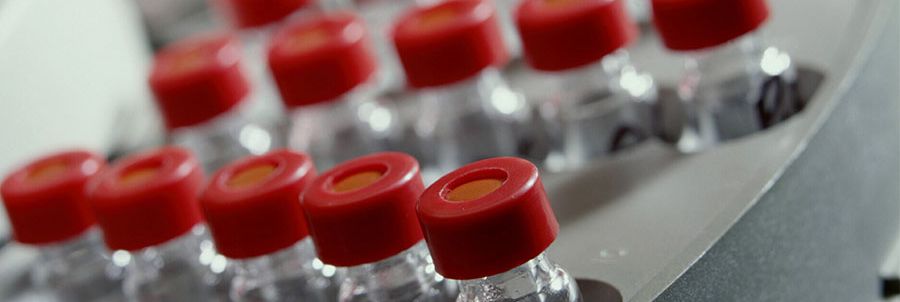
Drug & vaccine development
Pharmaceutical companies are also currently working overtime to develop new COVID-19 treatments as well as a possible vaccine. With such a large number of drug candidates to test and little time to do it, automation is being implemented across the drug discovery pipeline. There are several advantages to using automation during the drug discovery process. This includes increasing the reliability and throughput of processes while also minimizing the time spent on tedious hands-on tasks. In addition, this increase in data accuracy and precision allows researchers to improve their hypothesis-driven research. The precision with which assay plates are run using automation assures uniformity within a given screen and enables researchers to test a greater number of hypotheses in more complex workflows and screening scenarios that may be difficult to execute manually.
Another area where automation is important for drug development is the implementation of high-throughput screening. This allows companies to rapidly evaluate the activity of a large number of chemical compounds against specific biological targets. As a result, thousands of agents, such as small molecules or antibodies, can be tested quickly and in a reproducible manner, allowing candidates with little or no effect to be rapidly excluded from the pipeline. As such, a large batch of agents can be reduced to a small manageable number that show the most promise. This requires automated machines coupled with liquid handling devices, robotic arms, barcode scanners, and dedicated software.
In terms of actual chemical compound synthesis, new tools are helping automate the complex multistep synthesis process. This may also require the use of artificial intelligence (AI) to coordinate the procedure correctly. The AI-automation pairing can be mutually beneficial, as the more information provided to the AI, the better the output will become. Therefore, the information generated regarding molecule synthesis through the automation workflow can be recorded and used to train the AI for the next cycle of experiments. This has the potential to generate an exponential impact on the development process, reducing the time required to find a suitable drug candidate from years to a matter of months.
Conclusion
While automation has been around for years, its adoption has been catalyzed by the advent of the COVID-19 pandemic. While automation used to be a luxury, it has now become a necessity for the healthcare world. The increased demand for sample processing will test our current automation technologies and inevitably bring forth a new wave of automation technologies for years to come.
LabTAG by GA International is a leading manufacturer of high-performance specialty labels and a supplier of identification solutions used in research and medical labs as well as healthcare institutions.

